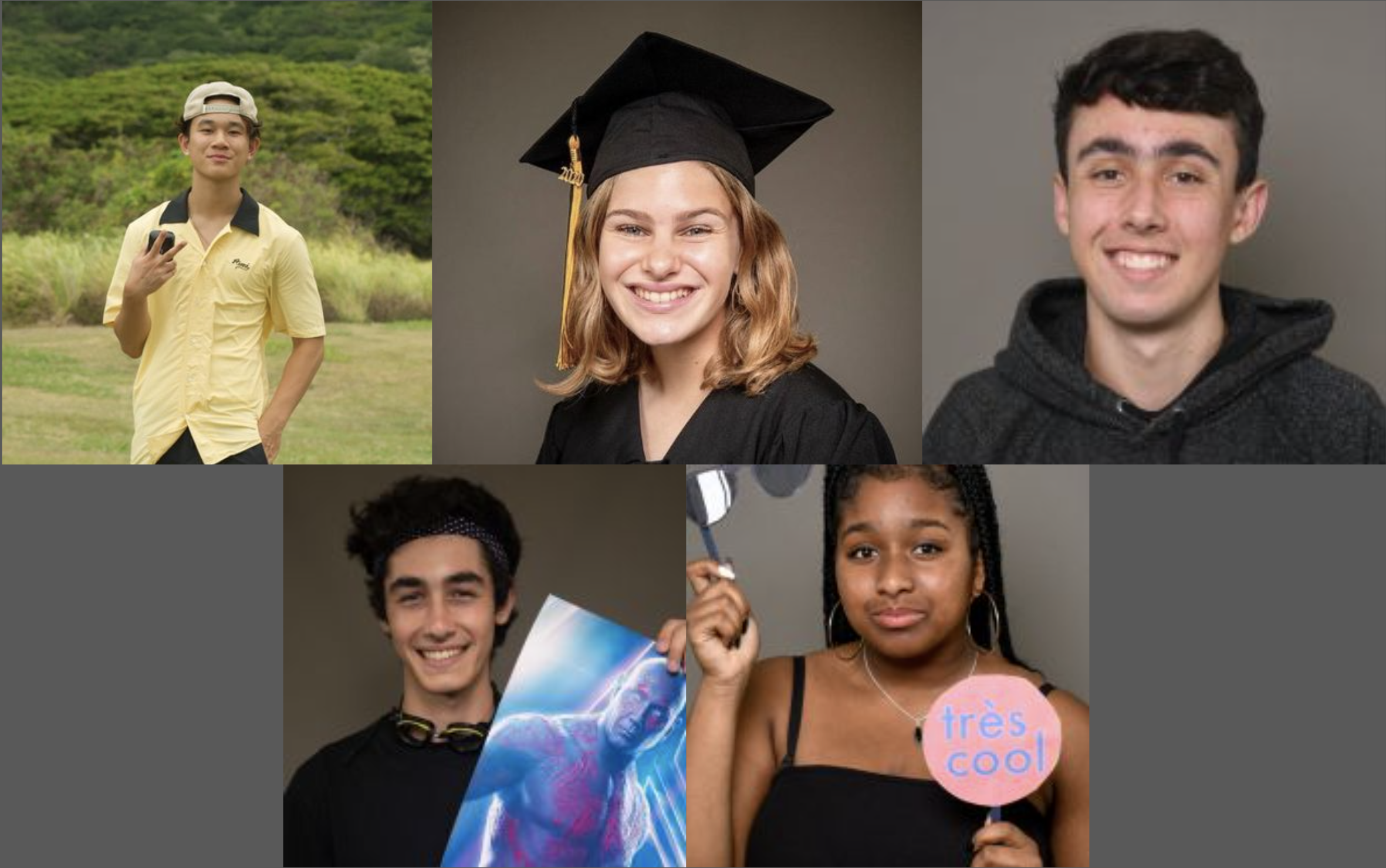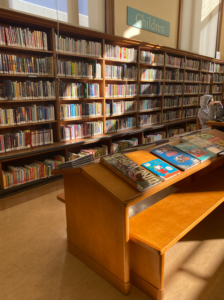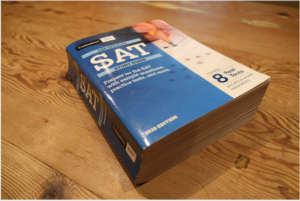Every year, Lick-Wilmerding High School graduates a diverse body of students. These students — the alumni of LWHS — are thrust into the world beyond high school. For many, that world brings massive changes to their lives.
College is the first time that the majority of LWHS alumni have lived in a city outside of the Bay Area. College is the first time that many LWHS alumni are exposed to a lecture-style curriculum — a learning system far removed from the collaborative, small-group work found throughout LWHS’ classes. And, most importantly, college is the first time that many LWHS alumni will live as independent adults.
Recent alumni, those who have graduated from LWHS during the last few years, have just begun their journey into young adulthood. Many feel that their experience at LWHS remains significant to them. The skills they learned and developed in high school — knowledge in everything from dance to calculus, from soldering to Latin American History, from listening to interrogating — serve as the foundation for their lives.
One recent LWHS alumni, Justin Yee ’20, currently attends New York University (NYU). NYU’s main campus is in the largest city in the U.S., so Yee has found himself living in a setting quite different from the suburbs of San Francisco, where he grew up.
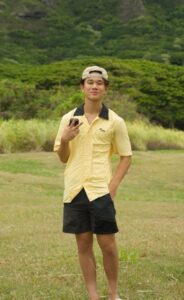
photo courtesy of Justin Yee
Yee noticed that the diversity he was exposed to at LWHS helped him adjust to his college environment. Yee said, “the diversity of Lick — diversity in terms of race, gender, socioeconomic status — helped me to better understand where I come from, where other people might be coming from and how to react to certain situations or social contexts.”
“I think that (diversity) helped me prepare for coming to a city like New York,” he said, “where there are so many different people from so many different walks of life.”
Coming from a quiet suburb, one of the first things Yee noticed about New York City was the overwhelming amount of activity constantly going on around him. “You kinda feel, when you come to a city like New York, like you always have to be doing something,” he said. “There’s so much going on that (you feel) when you’re sitting at home, you’re not making use of your time.”
After living in New York City for months, though, Yee adjusted to that fast-paced environment. “One thing I had to come to understand is I don’t need to feel like that,” he said, referring to the pressure he feels to constantly engage in activity. “I can relax. I can chill. Even in a city like New York.”
Yee felt that his academic experience at LWHS prepared him for college. Specifically, Yee appreciates the skills he learned from the English department at LWHS, which helped him excel compared to his peers at NYU.
He said, “Lick definitely helped me prepare (through) reading a lot of more difficult texts, knowing how to analyze, how to annotate and how to format different styles of essays.”
“It’s been kind of crazy to come to these college-level courses and (realize that) people don’t know how to do certain things that you feel you’ve been doing since frosh year,” Yee said.
Molly Weiner ’20 also felt that she was prepared for the college environment by LWHS’ English program.
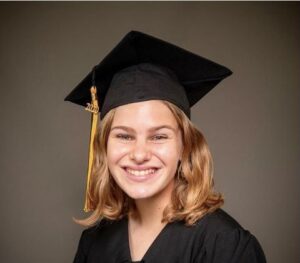
photo courtesy of Molly Weiner
Weiner attends Yale University in New Haven, Connecticut, a school that requires her to do a “pretty extreme” amount of writing.
“But,” Weiner said, “Lick’s writing training was really fantastic.”
Just like for Yee, the English department at LWHS was instrumental in preparing Weiner for the severe workload in college.
Weiner, however, can also see areas where she wishes LWHS had prepared her better.
Once coming to Yale, Weiner realized how “at the history classes at Lick, they try to impress upon you more general ideas and less specific events or timelines.”
This learning style — teaching to historical themes across civilizations rather than distinct events — certainly benefited Weiner. She said that she learned “general ideas of inequality, privilege, bias and the way that things progress throughout history” from LWHS.
That knowledge “was really valuable,” Weiner said. But, the lack of experience learning about specific historical details has made learning history at Yale challenging.
Weiner is currently taking a Constitutional History course at Yale. But, she said that she is “finding it somewhat difficult” because a lot of her peers at Yale have taken AP U.S. History in high school. This AP course, according to her, “taught (my peers) a much more concrete and detailed rundown of history.”
Another thing Weiner can observe about LWHS — now that she has graduated — is the school’s lack of diversity of thought.
She said, “Lick’s environment was really powerful for me for developing my values — being around people who shared left-leaning views and having that progressive curriculum.”
However, Weiner wishes that she was exposed to a greater variety of ideas at LWHS. “I do think that there should be more of a push in the classroom to challenge students’ beliefs.”
Now that she has moved away from her hometown, Weiner can also appreciate how living in the Bay Area has affected her life. Weiner notes the culture of civic engagement in the Bay Area, which she claims has been instrumental in shaping her relationship to the world around her. According to Weiner, “having examples of what really powerful student-organized (protests) look like is something the Bay Area taught me well.”
Living in Connecticut, Weiner has noticed a distinct lack of social activism. She recently attended a student-led climate strike in New Haven, which she said was “awesome but tiny.”
Accustomed to the large social movements in the Bay Area, Weiner was surprised to find a relatively small presence of social activism in her college town.
For Gabe Castro-Root ’21, his experience at LWHS also eased his transition into his college environment.
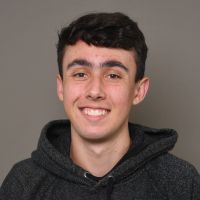
photo courtesy of Gabe Castro-Root
Castro-Root said, “I’m in Washington D.C at American University (AU), and, to me, D.C. feels a lot more racially and culturally diverse than San Francisco does, and AU feels a lot more diverse than Lick.”
“At the same time,” he said, “Lick did a really good job of exposing my classmates and I to a wide variety of cultures and opinions.”
Similar to other LWHS alumni, Castro-Root also believes that his experience in LWHS’ writing program prepared him well for the academic sides of college. Specifically, Castro-Root mentions The Paper Tiger as incredibly important for shaping his interest in journalism today.
In fact, Castro-Root said, “all of the credit for my interest in (journalism) now comes from The Paper Tiger.”
There are other aspects of LWHS which Castro-Root also feels have prepared him for college.
For example, Castro-Root said, “I think this might be an unpopular take, but the Sex-Ed and Sexual Assault Awareness program at Lick were really, really good.”
Castro-Root had to take a sexual assault awareness training at AU. But, he said “I knew all of it already because of what we did at Lick. Even though people criticized (the Sex-Ed curriculum), as did I at the time, when I was doing the (sexual assault awareness) training for my college, I was really impressed by what a thorough job Lick did.”
Rafe Hessekiel ’20 remarked on a specific aspect of LWHS that gave him a distinct advantage in college.
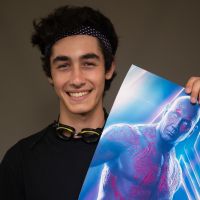
photo courtesy of Rafe Hessekiel
This advantage, according to Hessekiel, came from his experience using Rhino — a 3D modeling software LWHS students use to design their technical arts projects before they physically build them.
Hessekiel is currently in the School of Architecture at Rice University in Houston, Texas. The students in the architecture program often use the Rhino software to design buildings. According to Hessekiel, though, very few students had prior experience using Rhino before they came to Rice.
Hessekiel was an exception.
Hessekiel said, because of his time at LWHS, “I had a pretty good understanding of Rhino, which gave me a head start early on.”
Four years of practice earned Hessekiel a reputation for being “the person that people went to when they needed help with modeling.”
Compared to his peers, though, Hessekiel believes that he is disadvantaged because he was not able to take AP courses at LWHS.
“The lack of an AP program is, to me, a little bit frustrating because there are a lot of niche topics that are covered in college which would’ve been helpful to know about and learn about in high school,” he said.
Hessekiel shares this sentiment with Weiner. They both wish that they could have taken AP courses which, they believe, could have prepared them better for college curriculum. This lack of AP courses at LWHS is a theme in recent alumni’s critiques about their education at LWHS.
Journey Moore-Prewitt ’21 feels the same way about the lack of AP courses at LWHS.

photo courtesy of Journey Moore-Prewitt
Moore-Prewitt — who currently attends Swarthmore College in Swarthmore, Pennsylvania — is considering majoring in biology. She is taking a lot of introductory courses in the subject now. However, because she did not take AP courses at LWHS, she is having a hard time in these introductory college biology courses.
“I think that’s a gap,” she said, addressing the lack of AP courses in high school, “which is affecting me and a couple of my friends, especially those going into STEM.”
Similar to Weiner, Moore-Prewitt can also observe a distinct lack of social activism in her college town.
She said, “because Lick is so civic-engagement-oriented, you spend a lot of time outside of school doing (social activism). But, because I’m in a small town, there’s not much to civically engage with now.”
Since graduating from LWHS, Moore-Prewitt has attempted to keep the important friendships she made during her time in high school. Because many of her friends from LWHS attend a college on the East Coast, according to Moore-Prewitt, she has had the chance to meet up with them in person.
This opportunity, she said, has made it “really easy to stay connected.”
Making friendships in college with people interested in other things than she is, however, has presented an unexpected challenge to Moore-Prewitt.
This is because people in college with similar interests have schedules that align very well. “Athletes are always hanging out with athletes,” Moore-Prewitt said, “not necessarily because they don’t like other people, but because they spend so much time with (other athletes) that they have to.”
Moore-Prewitt has found herself hanging out with the other students who major in biology, because those students have similar extra curriculars, take similar courses and conduct research during similar schedules as hers.
Because friend groups, according to Moore-Prewitt, often are created in the context of the strict schedules of college, she has noticed that the friend groups are much less diverse at Swarthmore than they were at LWHS.
Moore-Prewitt said that at Swarthmore, “core-identifiers unite people. A lot of the Black people are friends; a lot of the Black women are friends; a lot of Queer people are friends.”
“At least at my college, whole friend groups of up to like 15 people are all one race or one sexuality,” she said.
“At Lick,” however, “a lot of the friend groups were diverse.”
Moore-Prewitt believes that the diversity within LWHS friend groups was not necessarily due to the school’s vocal spirit of diversity. Actually, she said, “especially in my grade, there weren’t that many Black kids. We were all dispersed among different friend groups, and we would only, sometimes, come together. But very rarely.”
But, at Swarthmore College, Moore-Prewit said, “It feels like the Black students are all kind of one large friend group.”
There are many themes found between recent LWHS alumni’s reflections on their high school experience. Some mention the lack of AP courses as a gap in their education, while others praise LWHS’ writing program for preparing them well for the harshness of college education.
However, LWHS alumni have also perceived aspects of their high school experience quite differently. Yee and Castro-Root, for example, both believe that the diversity they were exposed to at LWHS prepared them to engage with a wide range of perspectives in college. But, Moore-Prewitt and Weiner both thought that LWHS had a lack of certain types of diversity — a lack of diversity of thought, for Weiner, and a lack of Black students, for Moore-Prewitt.
In many ways, college is a vastly different and overwhelming environment for many LWHS alumni. Yee’s reaction to this change, initially, was to find friends similar to the ones he made at LWHS. He thought that this would bring him a sense of security and familiarity in an otherwise foreign setting.
What Yee came to realize, though, is that there “are so many different types of people” at his college.
Rather than rejecting those different to him, Yee embraced his classmates’ diversity.
“If you surround yourself with people just like you, it’s harder to grow,” he said. “But when you surround yourself with people who are so different from yourself, they help you to make yourself a better person.”




